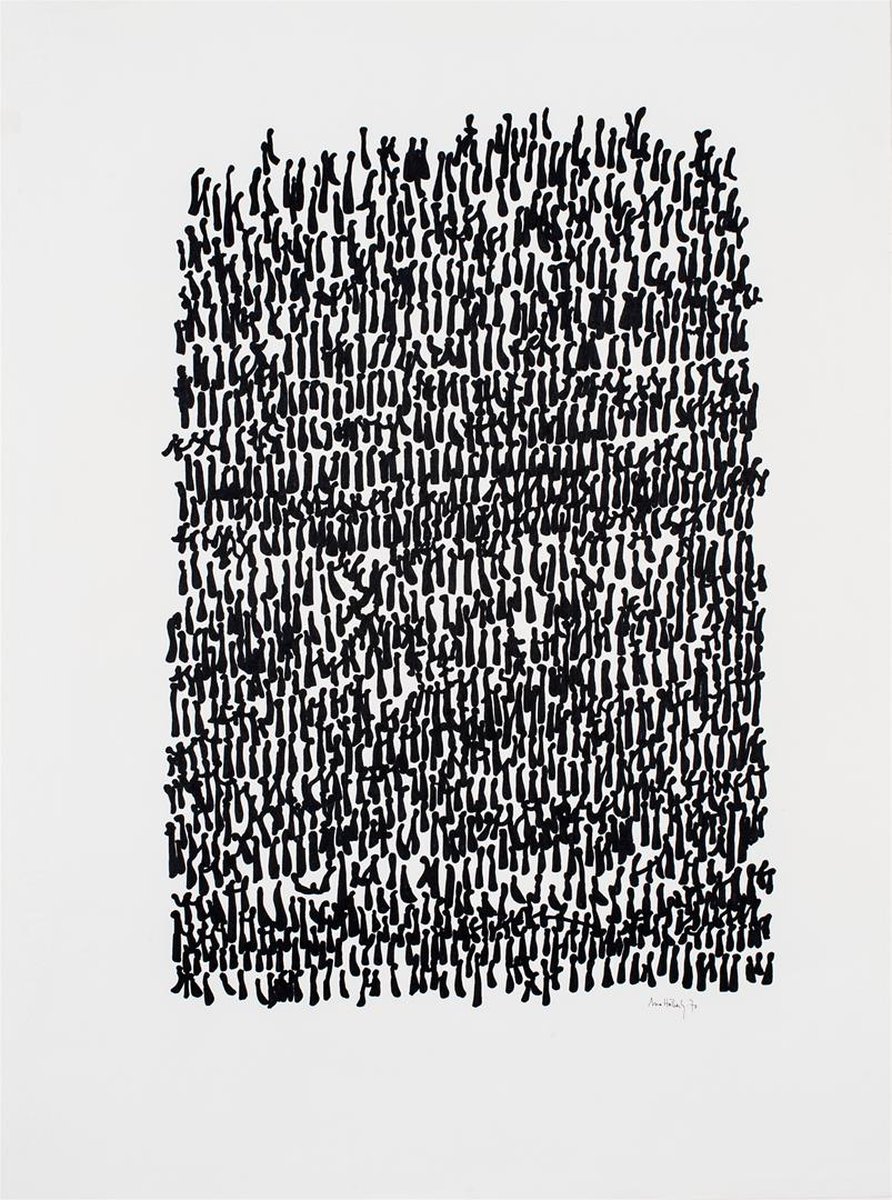The drawing Untitled by Ana Hatherly, a work that belongs to the Collection Caixa Geral de Depósitos, is highlighted as it is part of the exhibition “El Poder Con que Saltamos Juntos. Women artists in Spain and Portugal between dictatorship and democracy”, curated by Giulia Lamoni and Patricia Mayayo. The show is open at IVAM – Institut Valencià d'Art Modern, Valencia, Spain, between 16 May and 29 September 2024.
Hatherly's rapport with literature, by exploring concrete and experimental poetry and visual arts, made it one of the most multifaceted and cohesive proposals of Portuguese contemporary art. Her writings combined with the visual potential of the word surpassed the boundaries of drawing and painting, which become more promising and transgressive. In this sense, as the images it produces reach their readers, the freedom of gesture and the actions it encloses become a thought: “The intelligent hand was, at once, the sensitive and the conceptual hand of the one who created the drawings’ frames as a form of writing, while composing metaphorical worlds based on its mechanisms: precisely beyond the form and beyond the senses that reassure and unsettle us.” (Raquel Henriques da Silva). Untitled, 1970, comes from the association between calligraphy and the image it produces. These are not drawings of words or letters, but of similar signs, “because the act of erasing is in itself the only remainder of the operation” (Manuel Castro Caldas), which, as a whole, form a possible landscape and a free thinking space. This move beyond artistic disciplines can also be seen in the video-poems of political posters torn from the walls after the democratic revolution of April 25, 1974. In the videos, the posters are glued, superimposed, torn, transforming the revolutionary message: “The words themselves demanded the freedom that was shouted in the street: freeing the signifier from the yoke of the meaning. Becoming autonomous.” (Paulo Pires do Vale).
An avant-garde poet, Hatherly’s artistic activity also included fiction and essays, as well as cinema and visual arts. Born in Porto in 1929, she studied Cinema at the London Film School, England, where she spent extensive periods. She was a teacher at Escola de Cinema do Conservatório Nacional and at Ar.Co – Centro de Arte e Comunicação Visual, Lisbon. She graduated in Germanic Philology from Faculdade de Letras, University of Lisbon and received a doctorate degree in Hispanic Studies from the University of California, Berkeley, USA. Researcher and promoter of Portuguese culture from the Baroque period, she was a chair professor at Faculdade de Ciências Sociais e Humanas, Universidade Nova de Lisboa, where she founded and directed the Institute of Portuguese Studies. She has been a prominent member of the Portuguese Experimental Poetry group since the 90s. She passed away in Lisbon, in 2015, at the age of 86.
Hugo Dinis


